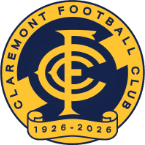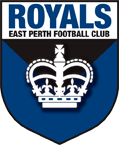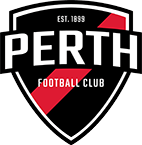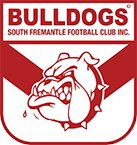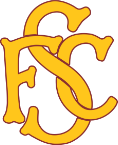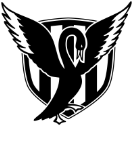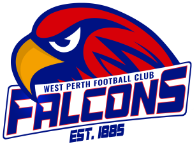

| Round | Competition | Opposition | K | H | D | M | T | HO | FF | FA | G | B |
|---|
| 2017 | Hall of Fame Inductee |
| 1914 | Club Leading Goalkicker (East Fremantle) |
| 1913 | Club Leading Goalkicker (East Fremantle) |
| 1909 | Club Leading Goalkicker (East Fremantle) |
| 1909 | Bernie Naylor Medal (East Fremantle) |
| 1908 | Club Leading Goalkicker (East Fremantle) |
| 1908 | Bernie Naylor Medal (East Fremantle) |
Player 1903-1915, 1919, 1921
Games 216 (East Fremantle 208, WA 8)
Goals 284 (East Fremantle 280, WA 4)
Honours: East Fremantle premiership player 1903, 1904, 1906, 1908, 1909, 1910, 1911, 1914; WAFL Leading Goalkicker 1908, 1909; East Fremantle Leading Goal kicker 1908, 1909, 1913, 1914;
East Fremantle Club President 1924-1936 (Premierships 1925, 1928-31, 33); East Fremantle FC Life Member (1915); East Fremantle Hall of Fame.
Although later overshadowed by the prodigious goal kicking feats of his legendary son George, Charles Doig Senior carved out a magnificent playing career spanning 19 seasons including eight premierships and multiple interstate carnival appearances as well as twice heading the WAFL goalkicking list. Lightly framed but possessed of a fine football brain, he shone either on a half-forward flank, full forward or in a pocket, and had a reputation as one of the best snapshots in the business. In subsequently turning his considerable football knowledge and expertise to administration he became a much-respected club President, presiding over a further six league premierships.
Charles Alexander Doig was born in Adelaide in 1883 to Scottish parents who had immigrated from Dundee in 1878. The family settled in Fremantle when Charlie was about three years old and he was 15 when his brother James (Scotty) Doig joined the newly formed East Fremantle Football Club in 1898.
Charlie made his league debut on August 15th 1903 against Perth at North Fremantle Oval and became an incredibly consistent player, never missing more than three games in a full season until 1915. Slightly built but very agile, he generally played on a half forward flank before becoming the regular full forward in 1908. In that season, the first Australian Carnival series was played in Melbourne to celebrate 50 years since the game began in 1858, and Doig was selected as full forward in the WA team. It was the first of three Carnival series in which he was selected and he played in eight games for WA between 1908 and 1914.
At club level, Charlie Doig headed his club’s goalkicking in four seasons and was WAFL leading goal-scorer in 1908 and 1909. In kicking 280 career goals for East Fremantle he became just the second player to score 200 goals in a WAFL career. Doig was a member of a powerful club and played in 11 Grand Finals for seven wins. He was also a premiership team member in 1903 before the introduction of finals and the side finishing top was awarded the premiership.
The following contemporary newspaper excerpts create a picture of Doig as a brilliant and highly effective player:
West Australian 13.7.08
Charley Doig is, for his inches, one of the pluckiest of footballers. A ripping high mark, unselfish in forwarding, fast and clever, he is the best forward on the coast, and plays just as good football in wet weather as he does on a dry day.
Fremantle Herald 24.7.14
Charley Doig was invaluable. Nobody to look at this bonny player, would think that he has already had 11 seasons. In his youth he was, unfortunately, not very strong, but of late years he stands up to the collar much better. Four of the best came from his boot on Saturday, and the last goal was a gem.
Charlie Doig retired after the 1915 season aged 32 but was cajoled back to senior football in 1919, playing nine more games. Two years after retirement as a player, Charles Doig joined the East Fremantle committee and in 1924 became President, serving for 13 years. This was a highly productive era for the club with six premierships, including four in succession from 1928 to 1931. With a direct involvement in 14 premierships as either player or club President, Charles Doig remains the most successful individual in WAFL history.
In private life, Charles Doig was a successful watchmaker and jeweller in Fremantle and passed away in 1944 aged 61 after a long illness. His two sons Charlie and George both achieved eminence as players and a grandson Don also reached league level.
A mercurial forward and a great football contributor in the first 40 years, Charles Doig senior is now rightly recognised as a champion of WA football in his own right, joining his legendary son George in the West Australian Football Hall of Fame.
| Season | Competition | Club | Matches | K | H | D | AVG | M | T | HO | FF | FA | G | B |
|---|
| Competition | Matches | K | H | D | AVG | M | T | HO | FF | FA | G | B |
|---|

